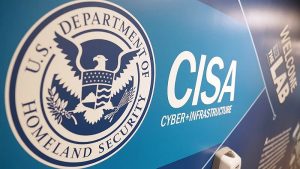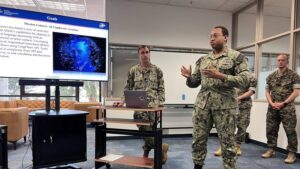Butler University has named Carol Williams chief information officer (CIO) at the Indianapolis-based institution.
A survey of eight U.S. school districts by the Government Accountability Office (GAO) finds that their deployments of assistive technologies to help students with disabilities are facing problems, including a lack of awareness of those products and services and the training required to use them.
The University of Minnesota has named Tarek Tomes vice president for information technology and chief information officer (CIO), effective March 16.
As artificial intelligence (AI) reshapes the workplace, the Department of Labor (DOL) is prioritizing AI literacy to prepare workers for change while countering fears of widespread job loss, Deputy Secretary of Labor Keith Sonderling said Monday.
Microsoft has launched a new artificial intelligence (AI)-powered program for K-12 educators to help them prepare students for an AI-driven future.
A coalition of 17 education and library organizations submitted a letter on Jan. 13 to Senate Commerce Committee leaders urging lawmakers to separate educator-guided classroom technology from recreational “screen time” ahead of a Jan. 15 hearing on youth technology use.
The Cybersecurity and Infrastructure Security Agency (CISA) announced Wednesday that it is participating in the Office of Personnel Management’s (OPM) CyberCorps Scholarship for Service (SFS) program, making 100 internship and postgraduate opportunities available to students.
At the Naval Postgraduate School (NPS), modeling and simulation (M&S) isn’t an academic exercise; it’s a path to better, faster, safer decisions in real-world situations. By building shared digital twins, running batches of what-if tests, and letting operators and engineers adjust the same model together, NPS teams pull months and years out of planning and reduce risk before anyone touches a flight line or flips a switch on an installation.
The Indiana Department of Education (IDOE) announced a new public-private partnership that will provide $75 million advance the state’s education priorities, including bolstering science, technology, engineering, and math (STEM) education and digital learning tools.
The Naval Postgraduate School (NPS) is building an artificial intelligence (AI)-ready force the way a teaching hospital trains clinicians: rigorous classroom learning, side-by-side practice on world-class technology, and real problems. Through its Artificial Intelligence Task Force (AITF), Digital Trident AI Challenge, and academic and leadership programs, NPS pairs tiered AI education with secure, scalable compute and operator-in-the-loop experimentation so students and faculty can turn promising ideas into useful capabilities that commands can adopt.













